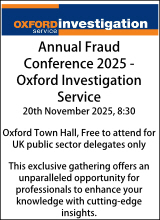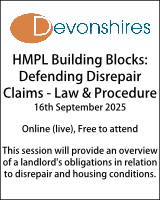High Court sets November hearing date for judicial review of guidance issued by equalities watchdog
The High Court is to consider in November a judicial review challenge over the Equality and Human Rights Commission (EHRC)’s guidance on trans people’s use of toilets at work and in services, following the Supreme Court’s decision in For Women Scotland v Scottish Ministers.
- Details
In a High Court hearing last week, Mr Justice Swift gave directions for the claim to proceed to a rolled-up hearing.
Alongside Good Law Project, the claimants allege that the EHRC’s ‘Interim update on the practical implications of the UK Supreme Court judgment’, published shortly after the Supreme Court’s decision in For Women Scotland v Scottish Ministers [2025], “misstates the law” and encourages employers and service providers to breach their legal duties under the Equality Act 2010, the Human Rights Act 1998 and the Gender Recognition Act 2004.
In April, the UK Supreme Court addressed the interpretation of the Equality Act 2010 in relation to gender reassignment and sex discrimination.
In a detailed judgment, the Supreme Court analysed the definitions of “sex,” “man,” and “woman” in the EA 2010, concluding that these terms refer to biological sex.
It found that interpreting “sex” as certificated sex would create incoherent and unworkable provisions, particularly in relation to pregnancy and maternity discrimination, single-sex services, communal accommodation, and sports.
Good Law Project said: “Days after the Supreme Court’s decision in the For Women Scotland case, the EHRC published – without consultation – an ‘interim update’ which encourages companies and public bodies to stop trans people from using toilets in line with their lived gender.
“This unleashed a wave of uncertainty and anxiety, with trans people challenged in bathrooms, outed in their workplaces, and under such stress that some were unable to keep doing their jobs.”
The organisation added: “We think the EHRC’s guidance goes far beyond what the For Women Scotland judgment requires. It amounts to a bathroom ban for trans people, violating people’s right to privacy in their everyday lives.”
At the hearing in November, the claimants will be arguing that the EHRC was wrong to say employers can only provide gendered toilets based on “biological sex”, and wrong to ignore ways that companies and the public sector can provide trans inclusive men’s and women’s facilities.
The challenge is brought by two trans people and one person who is intersex, along with the Good Law Project.
Alex Goodman KC and Crash Wigley of Landmark Chambers are instructed by the claimants.
Lottie Winson
Solicitor or Chartered Legal Executive
Police Misconduct & Vetting Solicitor
Locums
Poll















